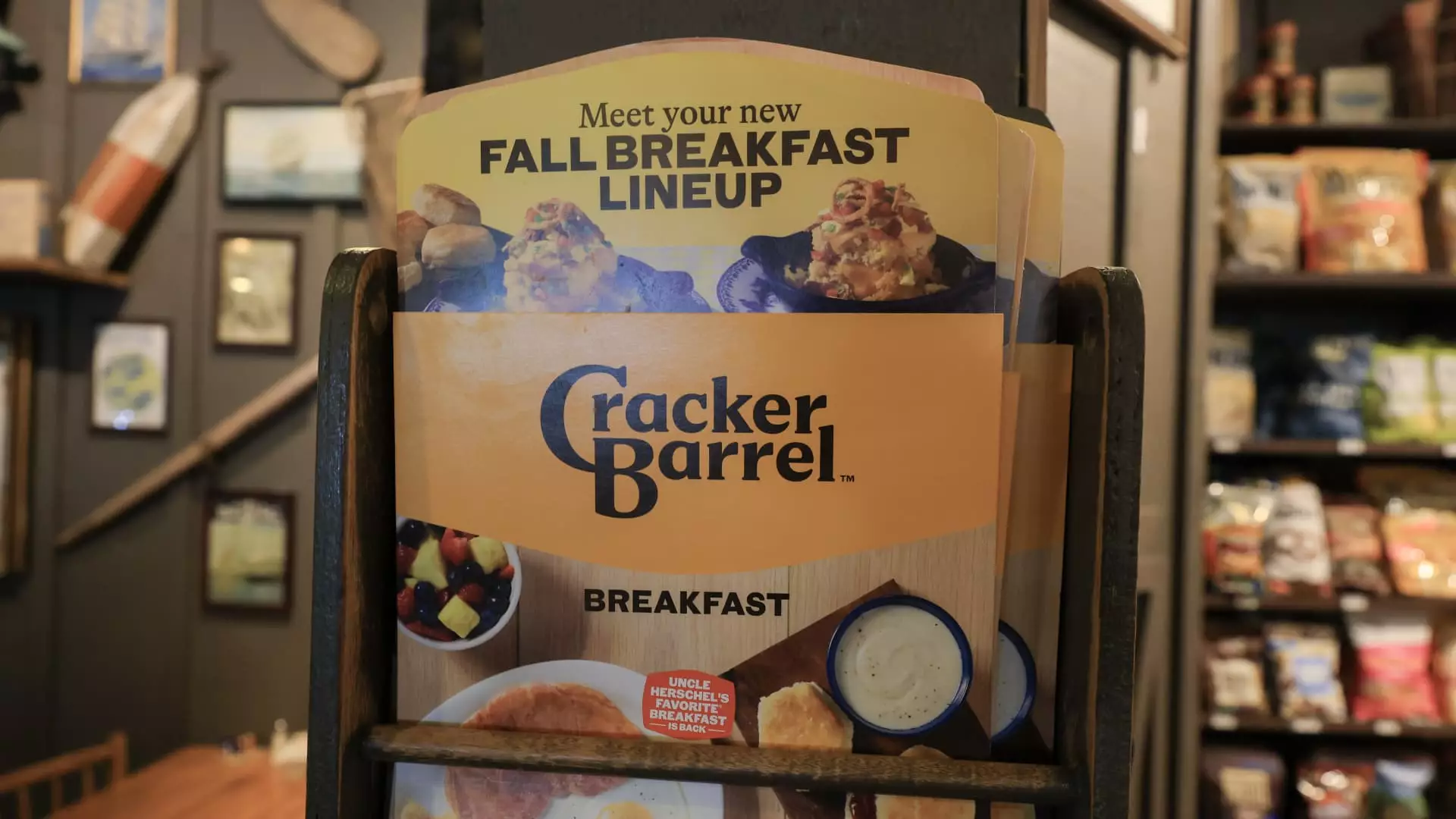In recent days, Cracker Barrel’s attempt at modernization has spiraled into a public relations nightmare, exposing the perilous trap that brands fall into when they prioritize superficial updates over authentic identity. The company’s decision to overhaul its logo—stripping away the familiar figure of a man leaning against a barrel and replacing it with a bare, word-only design—ignores the core of what has made Cracker Barrel resonate with its loyal customer base. Instead of embracing the deep-rooted traditions and nostalgic charm that carved its niche in American culture, the rebranding appears to be a misguided attempt to chase modern aesthetics, ultimately diluting the brand’s essence.
The removal of the “old country store” descriptor and the iconic emblem signals a troubling shift toward a generic corporate identity. Such actions suggest an abandonment of legacy in favor of appeasing trendy narratives around diversity and inclusion, a strategy that risks alienating core demographic segments while offering little substantive value in return. The company claims this is part of a “strategic transformation,” yet it feels more like a capitulation to social pressures rather than a genuine evolution—highlighting how superficial branding changes often serve as a veneer for deeper systemic anxieties about relevance in a rapidly changing society.
The Political and Cultural Overreach
This rebranding controversy did not occur in a vacuum; it is deeply intertwined with the current political and social polarization. Social media figures—ranging from Donald Trump Jr. to conservative activists—have swiftly seized upon the logo change as emblematic of a broader alleged “wokeness” overtaking traditional American values. The narrative constructed is that corporate leaders are subtly erasing nationalism and American heritage in favor of lenses colored by diversity and inclusion initiatives.
Such accusations, while exaggerated, reveal a crucial misunderstanding about the role of branding in contemporary society. A company’s visuals reflect its market strategy, not an ideological stance. Yet, in a climate rife with identity politics, superficial changes are often weaponized to signal ideological allegiance rather than genuine principles. Cracker Barrel’s internal decision, regardless of intent, has become a battleground for cultural wars, illustrating how corporate actions are now scrutinized through a polarized political lens.
This scenario underscores a troubling trend: brands are pressured to conform to societal expectations that often prioritize political signaling over authenticity. When a company seemingly alters its identity to avoid controversy, it risks losing sight of what made it special—its history, its relationships with loyal customers, and its place within American cultural fabric. The spectacle of social media outrage over such trivial visual updates exposes the fragility of corporate reputation in an era where perception matters more than substance.
The Cost of Superficial Change
Cracker Barrel’s declining stock—a 10% plunge—serves as a stark reminder of the perilous consequences of lazy rebranding. It is not merely about an outdated logo; it signals a failure to understand and respect the brand’s true value. Customers and shareholders alike question whether these changes are driven by authentic growth or mere marketing gimmickry aimed at appeasing a divisive societal narrative.
Moreover, the interior redesign of the restaurant spaces—criticized for leaning toward sterile modernity instead of embracing its rustic, country charm—further erodes the sense of authenticity that initially built the chain’s reputation. The company’s claim that new designs are “lighter, brighter, and more welcoming” rings hollow when these modifications strip away the warm, nostalgic ambiance cherished by generations.
This superficial approach risks long-term Brand Damage. When companies prioritize surface-level trends over substantive cultural identity, they inadvertently validate the cynics and critics who believe that corporate America is more interested in virtue signaling than genuine connection. In a marketplace where authenticity is currency, this kind of shallow transformation leaves a bitter taste, and it diminishes the emotional bond consumers have with longstanding institutions.
The Pitfalls of Spectacle and Political Signalism
The broader issue at play is the reliance on spectacle—using social media outrage and superficial brand gestures to craft a narrative of moral superiority or cultural progress. Cracker Barrel’s logo and redesign controversy exemplify how corporate actions can be hijacked to serve political agendas, often to the company’s detriment.
While some argue that modernization and diversity initiatives are necessary steps toward a more inclusive future, their implementation cannot be disconnected from authentic values. When companies appear to be conforming to societal pressures solely for appearances, they risk sabotaging their credibility. The spectacle of outrage—resulting in calls of “wokeness” and “discarding tradition”—overshadows meaningful dialogue and dilutes the very identity they claim to uphold.
In this environment, corporations must choose between superficial trendy gestures and genuine cultural engagement. The risk of pandering is that it leads to a cyclical erosion of trust, where consumers see through performative actions and withdraw loyalty. Ultimately, Cracker Barrel’s logo controversy reveals how fragile a brand can be when it becomes a pawn in the larger game of cultural signaling rather than a steadfast representation of rooted values.


Leave a Reply